
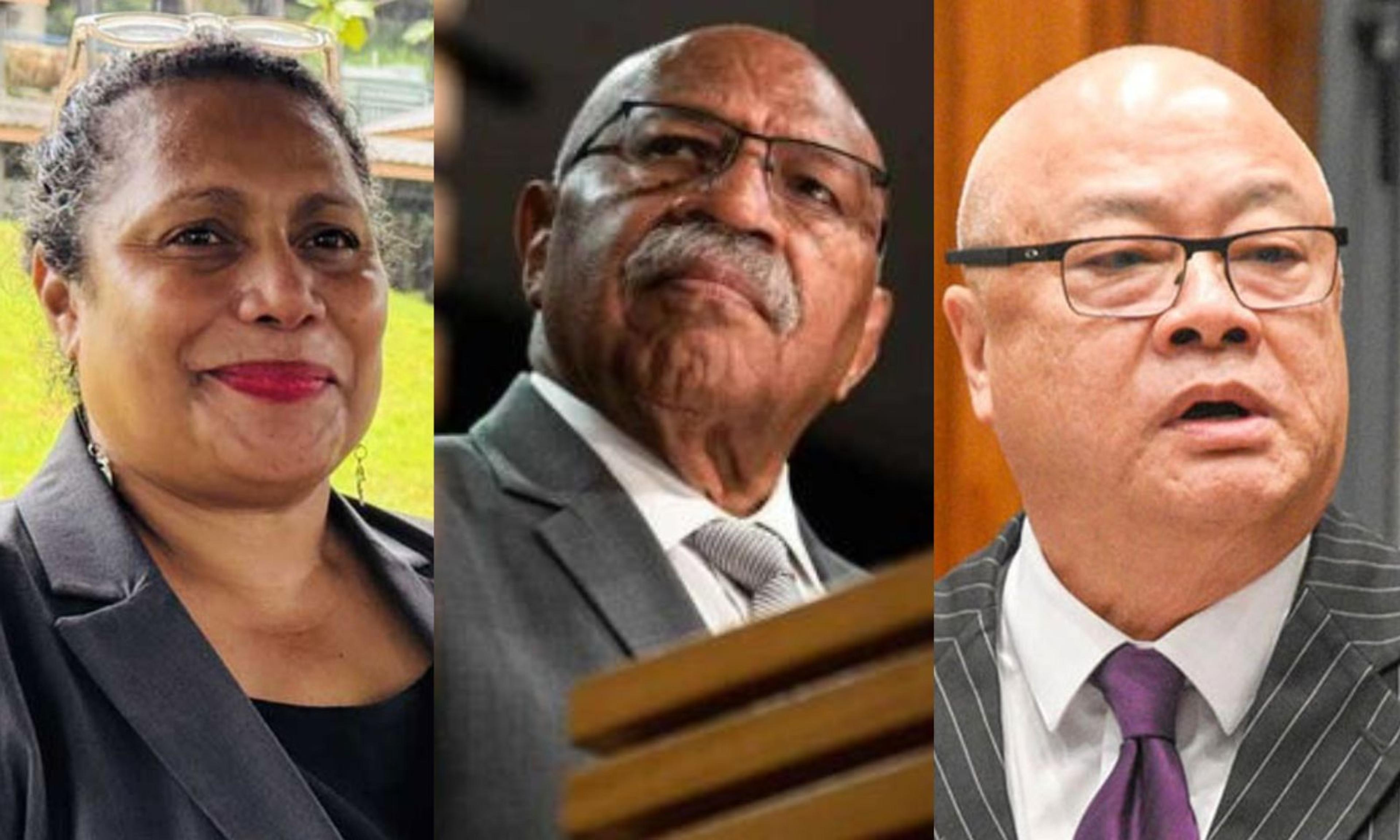
From left, sacked anti-corruption commissioner Barbara Malimali, Prime Minister Sitiveni Rabuka, and dismissed Attorney-General Graham Leung.
Photo/Supplied
Leaked report reveals political manipulation in Fiji anti-corruption chief, key officials fired
The fallout raises urgent calls for transparency as the nation grapples with integrity issues at the highest levels of governance.


'Even 20 cents adds up’: Manukau commuters feel pinch of fare rise
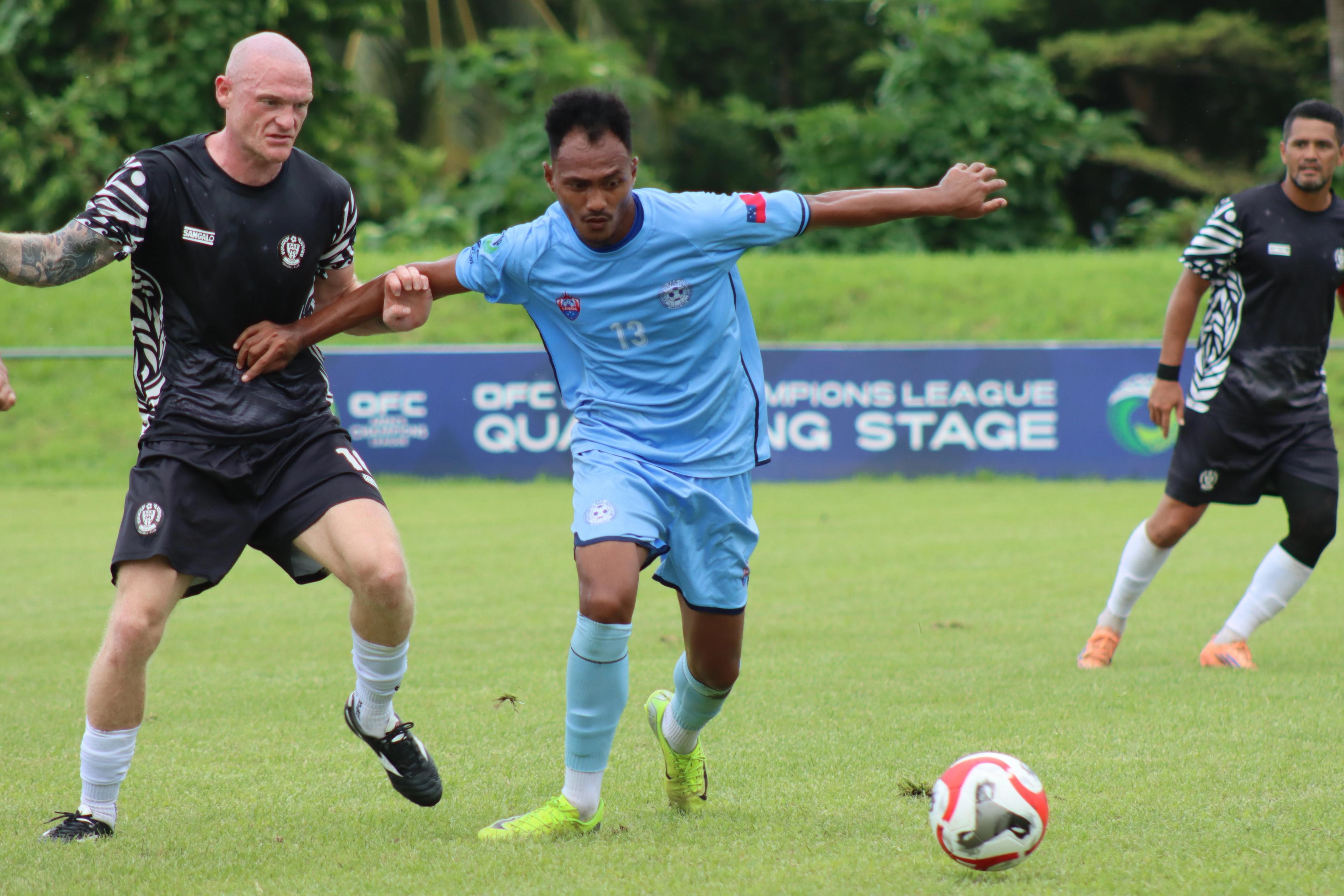
Pacific drama in Sāmoa as late twists keep Oceania dream alive
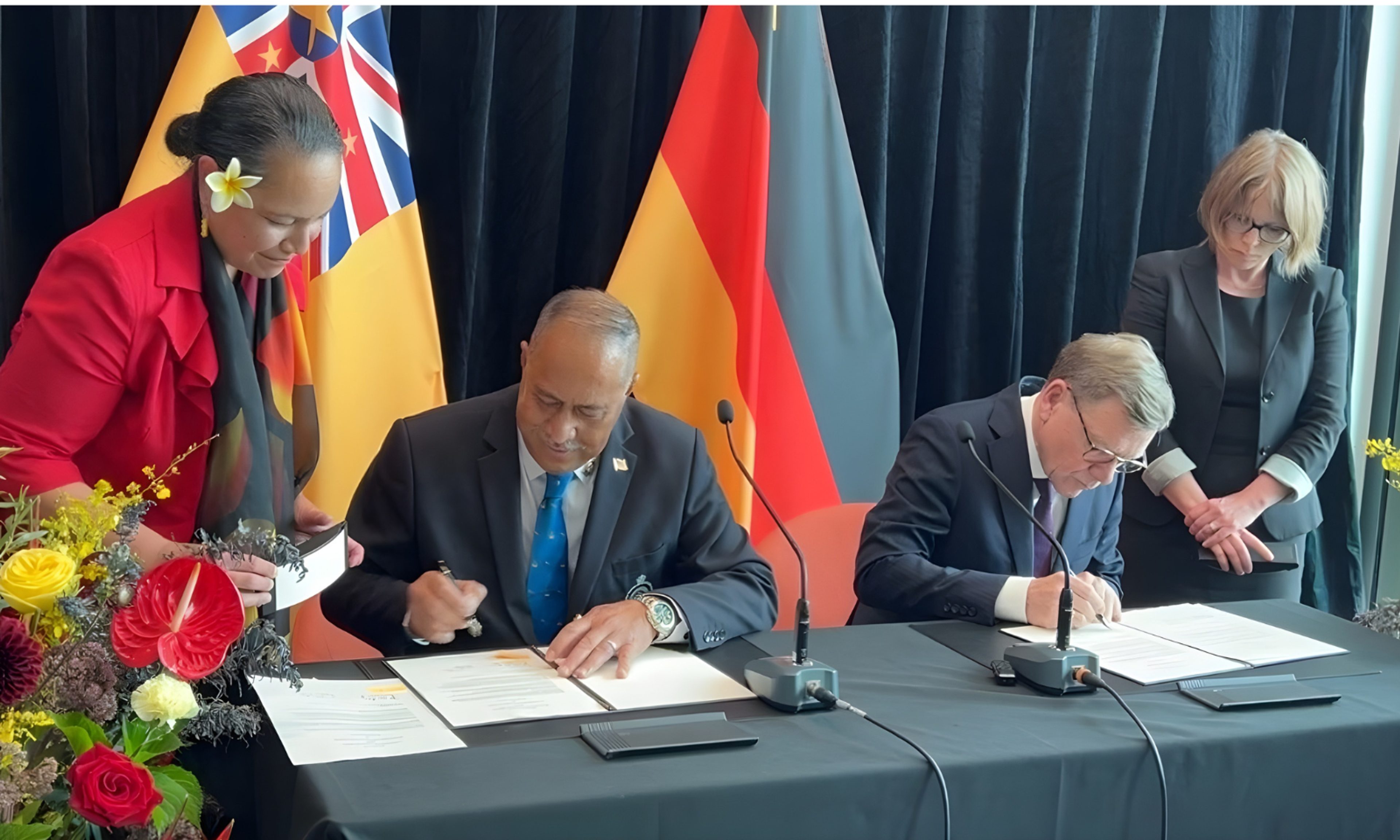


'Even 20 cents adds up’: Manukau commuters feel pinch of fare rise

Pacific drama in Sāmoa as late twists keep Oceania dream alive

A recently-leaked report from a Commission of Inquiry in Fiji has caused a stir, revealing potential political interference in the country's anti-corruption efforts.
The leaked document, seen by PMN News, concerns the appointment of Barbara Malimali, a Suva lawyer, as Fiji's anti-corruption commissioner.
Malimali's appointment, for a three-year term, came into effect on 5 September 2024. She was the first female commissioner after Rashmi Aslam's resignation in September 2023 left the position vacant.
While the full report has not yet been officially released, its findings have already led to major consequences, including the firing of Malimali and the Attorney-General, Graham Leung.
Many believe that more people in power could lose their jobs as police look deeper into the allegations.
Police Commissioner Rusiate Tudravu says investigations into the report's findings are underway after police received a formal referral letter from President Ratu Naiqama Lalabalavu.
Malimali and Fiji's Law Society are urging the Government to make the full report public, emphasising that transparency is crucial in this situation.
Some pages from what is believed to be the report have appeared online, criticising Malimali's appointment as questionable and troubling.
The pages suggest that the process of appointing Malimali might have been influenced by political motives, potentially intended to protect high-ranking officials and disrupt ongoing corruption investigations.
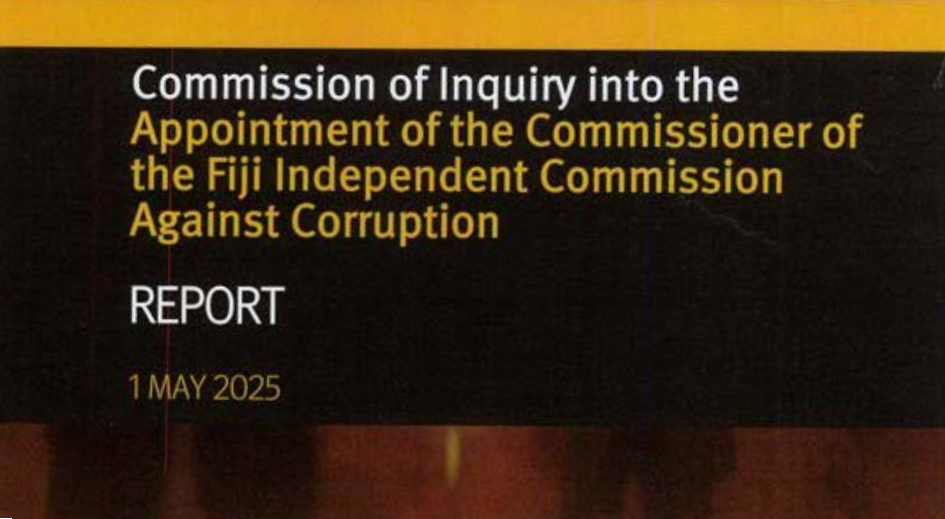
The cover page of the Commission of Inquiry report that was leaked on social media this week.
The leaked documents describe a serious breakdown of trust and integrity at the top level of governance and justice in Fiji. The report claims that there were irregularities in how Malimali was appointed that prioritised loyalty and secrecy instead of lawfulness and public trust.
The report also alleges that the appointment process was rushed, including negligence, improper actions, and withholding important information. It suggests that attempts were made to install Malimali quickly, potentially due to fears that someone else would not be as easily controlled.
“The evidence before the COI suggests the appointment process was politically manipulated and hurried to install an individual who may have been compromised,” the report states.
Malimali’s lawyer, Tanya Waqanika, says they have sought a copy of the full report and added their position as an affected party. Malimali is also challenging her dismissal in court, arguing that the decision was biased. She is seeking legal protection from the court while her case is considered.
Meanwhile, Fiji's Prime Minister Sitiveni Rabuka has remained silent since the leak, but his deputy, Manoa Kamikamica, confirmed to local media that he was acting Prime Minister at the time of Malimali's appointment. Rabuka was on an official visit to Kiribati on 27 August 2024, when the appointment was made.
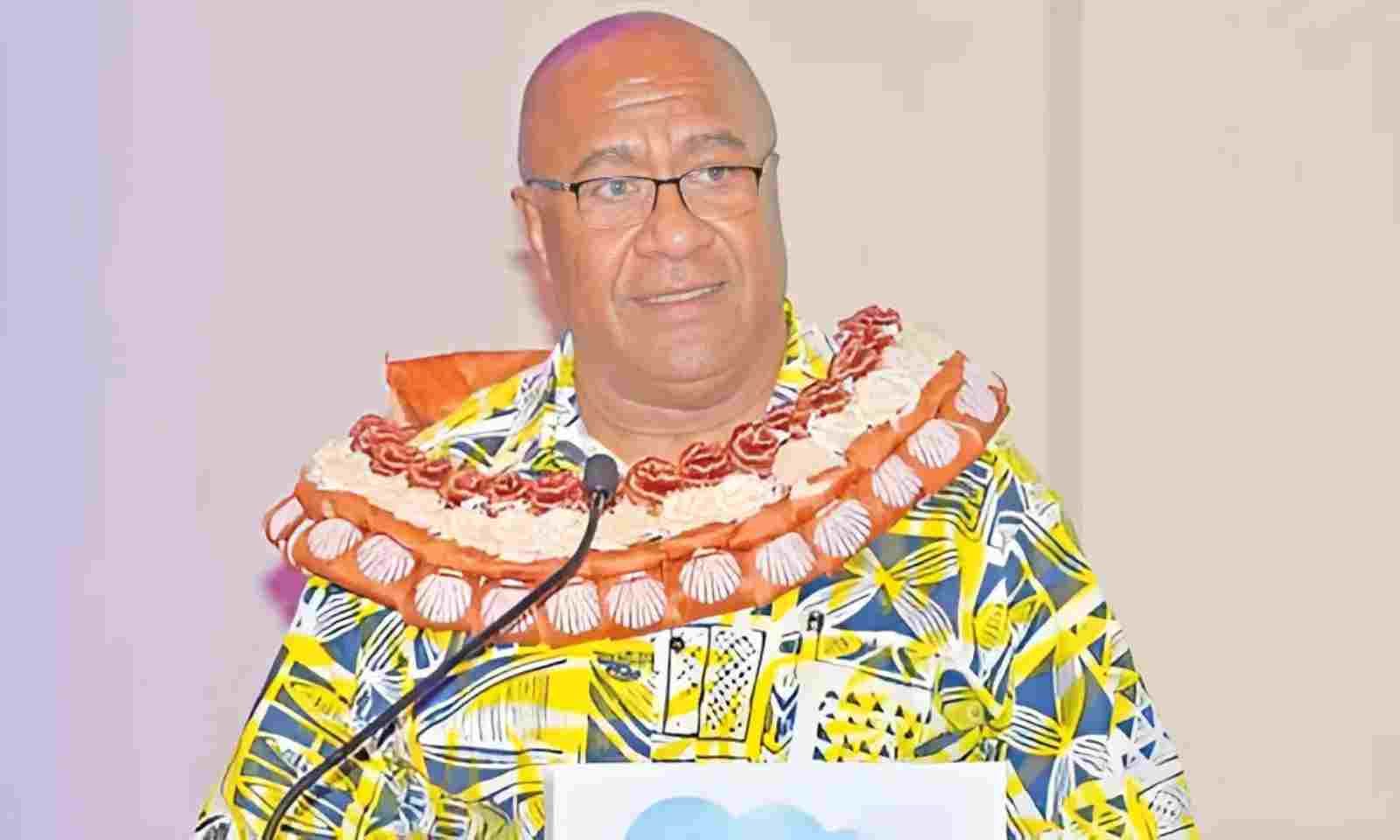
Fiji's Deputy Prime Minister Manoa Kamikamica. Photo/Fiji Government
Kamikamica insists that he had no influence over the decision and is waiting for the complete report to understand the situation better. “Yes, I was Acting Prime Minister at the time, but that had nothing to do with Barbara’s appointment,” he told The Fiji Times.
Kamikamica, who is also Minister for Trade, Co-operatives, SMEs and Communications, says he wants to explain his side once the report is public. He stressed the need for transparency and suggested that the public should hold off making assumptions until they can see the full findings.
“We’ll wait for the report to come out, because I want to ensure I can share my side of the story. Once I can discuss it openly, you’ll certainly hear my views.”
When asked by the Times whether he would step aside while the investigation unfolded, Kamikamica was resolute. “Firstly, we don’t know the allegations in that report. I have no idea. So until it becomes public, we’re just talking in theory.”
He says rather than making assumptions, the public should wait for the report's release.
Listen to COI Commissioner Justice David Ashton-Lewis on Australian radio speaking about the report.
Kamikamica also responded to COI Commissioner Justice David Ashton-Lewis’ comments during a recent interview, saying the Supreme Court judge did not know him well.
“He made the rules for the COI, and it appears he breached them. That’s for him to explain. From my perspective, I’m keen to have the opportunity to explain my side of the story.”
Despite mounting pressure, Kamikamica says he supports complete transparency.
“If the Prime Minister wants to release the report, I support that idea. There are some major issues I have with what I’ve heard is in the report. Once I can speak openly, you’ll certainly hear my views.”
Some experts warn that the situation in Fiji is evolving, with significant implications for its political landscape and efforts to combat corruption.